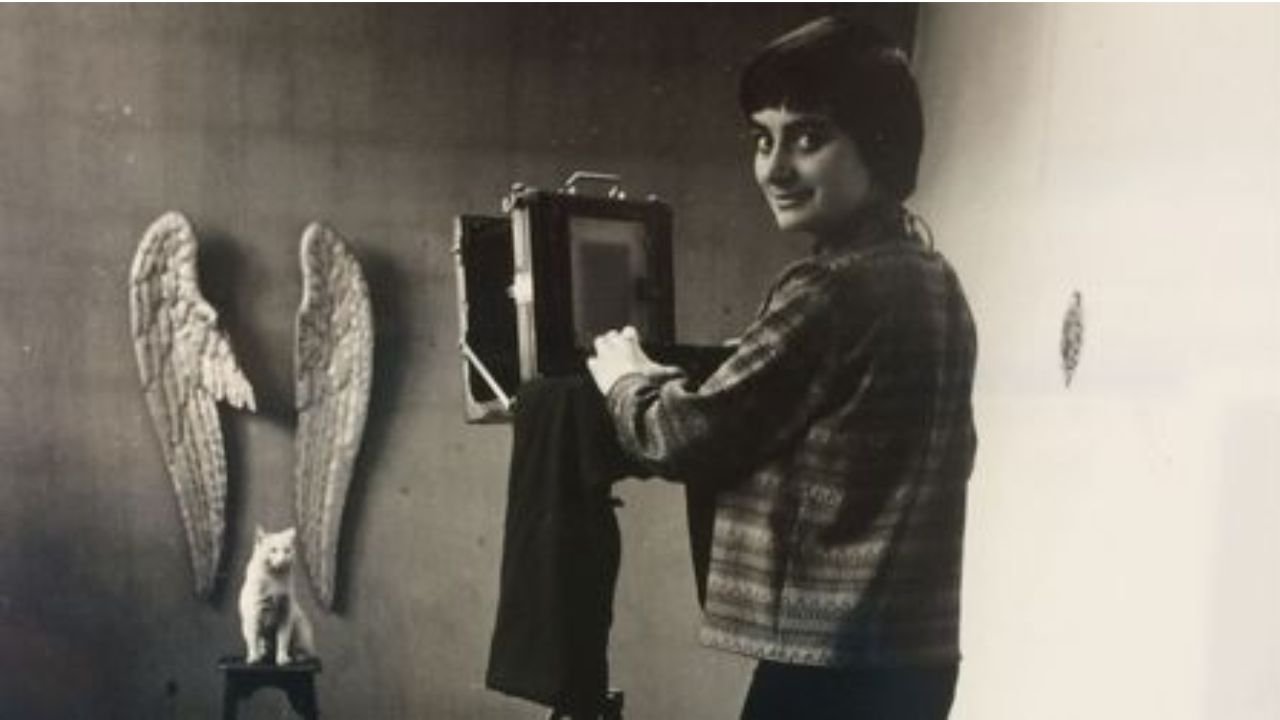Did you know that Agnès Varda, a pioneer of feminist filmmaking, has been credited with influencing the French New Wave? Her work not only challenged cinematic norms but also embraced themes of feminism, memory, and social issues. This blog post explores the incredible life and career of Agnès Varda, a filmmaker whose legacy continues to inspire future generations.
Agnès Varda was a visionary director, screenwriter, and artist whose unique approach to storytelling and film artistry left an indelible mark on cinema. She defied conventional filmmaking techniques, crafting stories that were both poignant and revolutionary. For film enthusiasts, feminist scholars, and art history students, rediscovering Agnès Varda is an exploration of cinematic brilliance and artistic courage. In this post, we’ll uncover her life, career, and lasting impact on the world of film.
Early Life and Education
Background
Agnès Varda was born on May 30, 1928, in Ixelles, Belgium. Her family, of Greek and French descent, relocated to France when she was young to escape the turmoil of World War II. Growing up in Sète, a coastal town in southern France, Varda developed a love for the arts from an early age. Her multicultural upbringing and exposure to different cultures would later influence her storytelling and visual style.
Education
Agnès pursued higher education in literature and psychology, but her true passion lay in the arts. She studied art history at the École du Louvre in Paris and trained in photography at the esteemed Vaugirard school. These experiences shaped her understanding of visual storytelling and provided a strong foundation for her future endeavors in filmmaking. Her work as a photographer for the Théâtre National Populaire further honed her skills in capturing the essence of human emotion and expression.
Career Highlights
Early Works
Varda’s directorial debut came in 1955 with “La Pointe Courte,” a film that foreshadowed the French New Wave movement. The film, a blend of documentary realism and fictional narrative, depicted the lives of fishermen and the struggles of a young couple. Its innovative storytelling and visual style garnered attention from critics, establishing Varda as a rising talent in the film industry.
Breakthrough Films
Agnès Varda’s breakthrough films, “Cléo from 5 to 7” (1962) and “Vagabond” (1985), solidified her reputation as a masterful storyteller. “Cléo from 5 to 7” explored themes of existentialism and self-discovery, following a singer awaiting medical test results. The film’s real-time narrative and introspective style resonated with audiences and critics alike.
“Vagabond,” a poignant portrayal of a young woman’s transient life, showcased Varda’s ability to capture raw human experiences. The film won the Golden Lion at the Venice Film Festival, further cementing Varda’s status as a pioneering filmmaker.
Awards and Recognition
Throughout her illustrious career, Agnès Varda received numerous accolades for her contributions to cinema. She was awarded an honorary Palme d’Or at the Cannes Film Festival in 2015 and received an Academy Honorary Award in 2017. Her work has been celebrated at film festivals worldwide, and she remains a beloved figure among cinephiles and industry professionals.
Artistic Style and Influence
Visual Style
Agnès Varda’s visual style was characterized by its authenticity and naturalism. She often used handheld cameras and natural lighting to create an intimate and immersive viewing experience. Her films blurred the lines between fiction and documentary, allowing audiences to connect deeply with her characters and narratives.
Themes and Motifs
Varda’s films frequently explored themes of feminism, social justice, and human connection. Her storytelling was empathetic and insightful, shedding light on issues such as gender equality, poverty, and the passage of time. Her films, like “One Sings, the Other Doesn’t,” celebrated women’s empowerment and solidarity.
Influence on Cinema
Varda’s innovative approach to filmmaking influenced the French New Wave and inspired generations of filmmakers, including Jean-Luc Godard and François Truffaut. Her commitment to authenticity and social consciousness paved the way for a new era of cinema, challenging established norms and encouraging creative expression.
Notable Works and Analysis
Filmography
Agnès Varda’s extensive filmography includes a diverse array of narratives and styles. Some of her notable works include:
- “La Pointe Courte” (1955)
- “Cléo from 5 to 7” (1962)
- “Le Bonheur” (1965)
- “Vagabond” (1985)
- “The Gleaners and I” (2000)
Each film is a testament to Varda’s storytelling prowess and artistic vision, offering audiences valuable insights and thought-provoking narratives.
In-Depth Analysis
“Cléo from 5 to 7”: This film’s real-time narrative and exploration of existential themes reflect Varda’s deep understanding of human psychology. The film challenges traditional cinematic conventions, offering a fresh perspective on storytelling.
“Vagabond”: Varda’s portrayal of the young protagonist’s fleeting existence is both haunting and beautiful. The film’s non-linear structure and raw realism provide a compelling examination of freedom and alienation.
Documentary Work
Agnès Varda was a pioneer in documentary filmmaking, seamlessly blending reality and fiction. Her documentary “The Gleaners and I” (2000) examined themes of waste and resourcefulness, offering a poignant reflection on consumerism. Varda’s documentaries were deeply personal and introspective, capturing the essence of the human experience.
Personal Life and Legacy
Family and Relationships
Agnès Varda was married to Jacques Demy, a renowned French filmmaker, in 1962. Their relationship was a source of mutual inspiration and collaboration. Together, they navigated the challenges of the film industry while raising their two children, Rosalie Varda and Mathieu Demy. Varda’s family played an integral role in her life and work, often appearing in her films and projects.
Legacy
Agnès Varda’s impact on contemporary cinema is profound and enduring. Her innovative storytelling and commitment to social justice have inspired countless filmmakers and artists. Varda’s work continues to be celebrated and studied, with her films serving as essential texts in film schools and feminist studies courses worldwide.
Tributes and Memorials
Following her passing in 2019, tributes poured in from around the world, honoring Varda’s contributions to cinema and her unwavering dedication to the arts. Film festivals, retrospectives, and exhibitions have celebrated her legacy, ensuring that her work remains accessible and influential for future generations.
Resources and Support
Films and Archives
For those interested in exploring Agnès Varda’s work, several resources are available. Streaming platforms like Criterion Channel and MUBI offer access to her films, while archives such as the Cinémathèque Française preserve her legacy for future study.
Educational Materials
Numerous books, articles, and courses are dedicated to Agnès Varda’s life and work. Titles like “Agnès Varda: Interviews” and “The Cinema of Agnès Varda” provide valuable insights into her artistic vision and filmmaking process.
Support Channels
Fans of Agnès Varda can connect with fellow enthusiasts through online communities, film forums, and social media groups. These platforms provide opportunities for discussion, collaboration, and exploration of Varda’s work and its impact on cinema.
You May Also Like: Andrew Santino Wife and Their Journey
Conclusion
Agnès Varda’s contributions to cinema extend far beyond her filmography. Her innovative storytelling, commitment to social justice, and artistic vision have left an indelible mark on the world of film. For film enthusiasts, feminist scholars, and art history students, studying Agnès Varda’s work offers valuable insights and inspiration.
Whether you’re new to her films or a longtime admirer, there’s always more to discover and appreciate about this iconic filmmaker. We invite you to explore her work, engage with her legacy, and join the vibrant community of Agnès Varda enthusiasts worldwide.
FAQs
What is Agnès Varda known for?
Agnès Varda is known for her pioneering work in film, particularly her contributions to the French New Wave and feminist cinema. Her films often explore themes of feminism, social justice, and human connection.
What are some of Agnès Varda’s most famous films?
Some of Agnès Varda’s most famous films include “Cléo from 5 to 7,” “Vagabond,” “La Pointe Courte,” and “The Gleaners and I.” Each film showcases her unique storytelling style and artistic vision.
How did Agnès Varda influence the French New Wave?
Agnès Varda’s innovative approach to filmmaking, characterized by its authenticity and naturalism, influenced the French New Wave. Her films challenged traditional cinematic conventions and inspired other filmmakers like Jean-Luc Godard and François Truffaut.
What resources are available for learning more about Agnès Varda?
Several resources are available for learning more about Agnès Varda, including streaming platforms like Criterion Channel and MUBI, archives such as the Cinémathèque Française, and educational materials like books and courses.
How can I connect with other Agnès Varda enthusiasts?
You can connect with other Agnès Varda enthusiasts through online communities, film forums, and social media groups. These platforms provide opportunities for discussion, collaboration, and exploration of her work and its impact on cinema.











